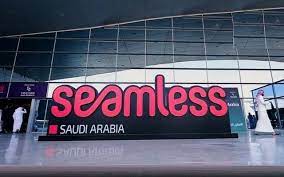
Introduction:
In the quest to mitigate climate change and reduce environmental impact, sustainable technologies have emerged as powerful tools for building a greener future. By harnessing renewable energy sources, adopting eco-friendly innovations, and implementing sustainable practices, industries worldwide are transforming their operations and making significant strides toward a more sustainable world. This column will delve into the realm of sustainable technologies, with a focus on their impact in the Middle East, particularly in the United Arab Emirates (UAE) and Saudi Arabia.
Renewable Energy Solutions:
Renewable energy has gained immense prominence in recent years, and its adoption has been instrumental in reducing greenhouse gas emissions and dependency on fossil fuels. The Middle East, known for its abundant sunlight and vast desert landscapes, has immense potential for solar energy generation. UAE and Saudi Arabia have recognized this opportunity and embarked on ambitious renewable energy projects. In the UAE, the Mohammed bin Rashid Al Maktoum Solar Park in Dubai is one of the world’s largest solar parks, aiming to generate 5,000 megawatts (MW) of clean energy by 2030. Saudi Arabia’s Vision 2030 includes plans to develop 58.7 gigawatts (GW) of renewable energy by 2030, with a particular emphasis on solar and wind power. These initiatives not only reduce carbon emissions but also stimulate economic growth and create job opportunities.
Eco-Friendly Innovations:
Innovation plays a crucial role in driving sustainable development. Companies in the Middle East, including the UAE and Saudi Arabia, are actively promoting and implementing eco-friendly innovations across various sectors. One notable example is the construction industry, which is notorious for its high carbon footprint. In response, eco-friendly building materials and practices are gaining traction. The UAE’s Masdar City in Abu Dhabi is a prime example of sustainable urban planning, incorporating smart infrastructure, energy-efficient buildings, and waste management systems. Additionally, Saudi Arabia has launched the Circular Carbon Economy (CCE) platform, focusing on reducing emissions through carbon capture, utilization, and storage (CCUS) technologies. These eco-friendly innovations not only mitigate environmental impact but also enhance resource efficiency and promote sustainable economic growth.
Sustainable Practices:
Beyond renewable energy and eco-friendly innovations, embracing sustainable practices is crucial for building a greener future. The Middle East, including the UAE and Saudi Arabia, has recognized the importance of sustainability and is implementing various initiatives to achieve their environmental goals. Water scarcity is a significant challenge in the region, leading to innovative solutions such as desalination technologies and water conservation programs. The UAE’s Green Building Regulations and Estidama Pearl Rating System incentivize energy-efficient construction and promote sustainable design practices. Saudi Arabia’s National Transformation Program 2020 aims to reduce water and energy consumption and increase waste recycling. These sustainable practices contribute to environmental conservation, reduce resource depletion, and promote a more sustainable lifestyle.
Environmental Benefits and Economic Opportunities:
The adoption of sustainable technologies in the Middle East, specifically in the UAE and Saudi Arabia, brings numerous environmental benefits. By reducing reliance on fossil fuels, renewable energy solutions contribute to lower carbon emissions and mitigate the impacts of climate change. Additionally, eco-friendly innovations and sustainable practices conserve resources, reduce pollution, and protect biodiversity. These environmental benefits align with the global agenda for sustainable development, including the United Nations’ Sustainable Development Goals (SDGs).
Furthermore, sustainable technologies create significant economic opportunities. The transition to a greener economy stimulates job creation, attracts investments, and enhances energy security. In the UAE, the renewable energy sector has witnessed substantial growth, attracting domestic and international investments. Saudi Arabia’s renewable energy projects have the potential to create thousands of jobs and diversify the economy beyond oil. By embracing sustainable technologies, the Middle East region can position itself as a leader in green innovation and sustainable development.
Conclusion:
Sustainable technologies are playing a crucial role in building a greener future, and the Middle East, particularly the UAE and Saudi Arabia, is at the forefront of this transformation. By harnessing renewable energy solutions, embracing eco-friendly innovations, and implementing sustainable practices, these countries are making significant strides toward a more sustainable world. The environmental benefits of sustainable technologies align with global sustainability goals, while also unlocking economic opportunities and diversifying the region’s economies. As we continue to explore and advance sustainable technologies, it is essential for individuals, businesses, and governments to collaborate and contribute to a more sustainable and prosperous future for all.
#SustainableTechnologies, #GreenerFuture, #RenewableEnergy#EcoFriendlyInnovations, #SustainablePractices #MiddleEastSustainability #UAEGreenTech #SaudiArabiaSustainability #SolarEnergy #WindPower, #GreenBuilding, #ResourceEfficiency #ClimateAction #CircularEconomy #WaterConservation #CarbonCapture#SmartInfrastructure#SustainableUrbanPlanning#, JobCreation, #EnergySecurity#EnvironmentalConservation#SDGs#EconomicOpportunities#Diversification#SustainableDevelopment#Innovation#CleanEnergy#GreenRevolution#GlobalSustainability#Collaboration



